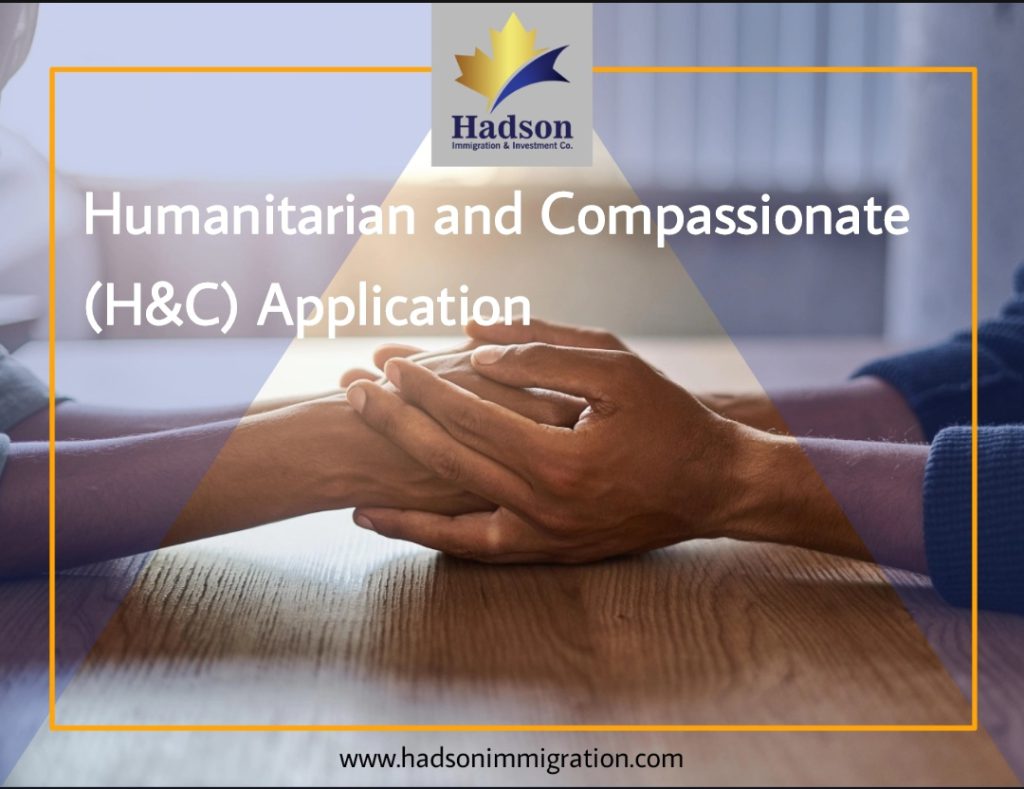Humanitarian and Compassionate (H&C) Application
What is an H&C application?
An H&C application is an application for permanent residence in Canada. In general, people must apply for permanent residence from outside Canada. In some cases, it is possible to ask IRCC to make an exception to this rule. An H&C application asks IRCC to allow the applicant to apply for permanent residence in Canada for humanitarian and compassionate reasons.
There are 2 stages of approval. A successful applicant will be:
allowed to apply for permanent residence in Canada for humanitarian and compassionate reasons (“approval-in-principle”), and approved for permanent resident status in Canada.
An applicant who is approved at the first stage could still be refused at the second stage if they do not meet the requirements for permanent resident status.
What are humanitarian and compassionate reasons?
An H&C applicant can give any reasons that they believe will support their application.
Anything that makes others feel compassion and want to help can be the basis for a successful H&C application. For example, the hardship an applicant will face if they have to return to their home country is often a reason that is used.
And if there is a child who would be directly affected if the applicant had to return to their home country, this is an important factor. IRCC must consider what is in the child’s best interests.
Some of the things that an applicant might give as reasons include:
how established or settled they are in Canada
their ties to Canada, including family ties
what would happen if family members were separated
their physical health or mental health concerns
the impact on their lives of family violence they have experienced or will experience if they have to return to their home country
hardship or difficulties they might face if they were sent back to their own country
The decision on an H&C application is “discretionary”. This means that immigration officers have a lot of freedom in deciding these applications. But they must base their decisions on the evidence and they must consider all of the evidence as a whole when deciding whether the application is strong enough.
Because there is usually no interview, it is important to:
send the best possible evidence to support the application, and
explain all of the reasons to stay in Canada.
If there are mistakes in the application or the supporting evidence is not strong, the application may be denied.
Hardship
In many cases, an H&C application is based on the hardship the applicant would face if they had to leave Canada.
Examples of hardship or difficulties that an applicant might face in their own country could include:
a lack of adequate health care
poverty
discrimination based on religion, gender, or something else
laws, practices or customs in a woman’s home country that might put her at risk of abuse or social stigma
IRCC cannot look at risks in the same way the Immigration and Refugee Board does when it decides a refugee claim. But the same situation that puts someone at risk may also be a reason for a successful H&C application.
For example, a woman who is at risk because of an abusive spouse in her home country may also be able to show H&C reasons she should not be forced to return to that country.
An immigration lawyer may be able to present her case in a way that shows H&C reasons rather than risk.
Establishment in Canada
Being established or settled in Canada increases an applicant’s chances of success. To show that she is established, a woman’s application could refer to such things as:
how long she has lived in Canada
why she has been living in Canada
her work history in Canada
her level of education
her skills and training
volunteer work done in Canada
her ability to speak English or French
any children born in Canada
family members here who are willing and able to help her
any assets or savings she has in Canada
A woman who got social assistance should explain why she needed it.
How well established the person is in Canada?
General family ties to Canada which may include the time you have spent in Canada, your criminal record in Canada, your employment, your involvement with community groups, your financial standing, etc.
Consider the best interests of a child if you have any.
What could happen to you if we do not grant the request?
A person can apply for permanent residence from within Canada on Humanitarian & Compassionate grounds if he:
is a foreign national currently living in Canada, needs an exemption from one or more requirements of the Immigration and Refugee Protection Act (IRPA) or Regulations in order to apply for permanent residence within Canada,
believes humanitarian and compassionate considerations justify granting the exemption(s) he needs and is not eligible to apply for permanent residence from within Canada in any of these classes:
Spouse or Common-Law Partner,
Live-in Caregiver,
Caregivers: Caring for children or people with high medical needs, Protected Person and Convention Refugeesor Temporary Resident Permit Holder.
Note: You may not have more than one Humanitarian & Compassionate Grounds application at a time. In case you have a pending refugee application, you can’t apply for permanent residence on Humanitarian and Compassionate Grounds.
Evidence in support of an application
An H&C application will not succeed without supporting evidence. The kind of evidence needed depends on the facts of the case. A lawyer preparing the H&C application can suggest what evidence is useful and how a front-line worker can help a woman collect the evidence she needs.







